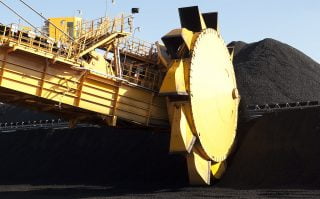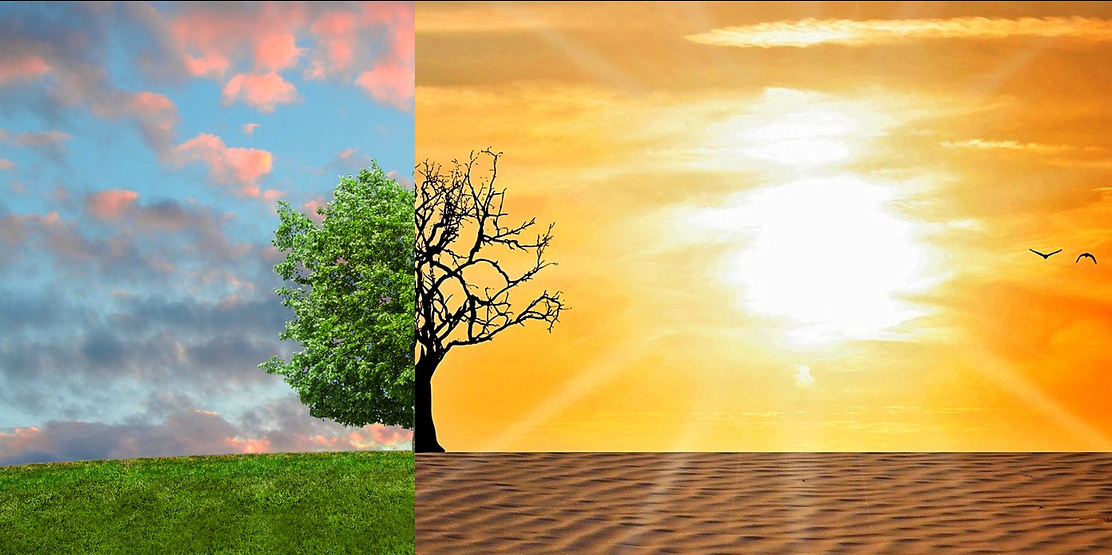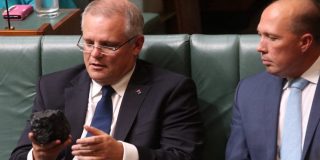Over the course of my life I’ve had the thrill of seeing some of the amazing forms of life on this earth. I have dived with great white sharks off the coast of South Australia; been delighted by fairy penguins making their way en masse from the ocean to their burrows in the sands of Phillip Island; been mesmerised by the giant sea turtles that haul themselves across the sandy beach of Selingen Island to dig a nest and lay their eggs, and then watched as hatchlings pop-up from the sand, furiously rotate their flippers and make their dash for the ocean; snorkelled the Great Barrier Reef with its kaleidoscope of colourful fish and corals; watched orangutans swing through the trees in Borneo; and spent a glorious day in a long extinct volcanic crater in Tanzania viewing lions, elephants, cheetahs, zebras, and hippopotamus.
Every one of these experiences has been an occasion for joy and wonder. It is a truly amazing world in which we live. Being a person of faith, this amazing diversity of life has pointed me to the wild imagination and stunning creativity of God.
It was with some dismay then that I recently read the Worldwide Fund Living Planet Report for 2016. It showed that between 1970 and 2012 the number of animals in the wild declined by 58%. Read that again. 58%. That’s over half the world’s population of wild animals gone in my lifetime.
The primary drivers are over-exploitation and habitat loss/degradation, along with climate change, introduction of invasive species and pollution. When it comes to over-exploitation, logging, hunting and over-fishing are the biggest culprits. With respect to habitat loss, the biggest contributing factor is land used for farming crops and livestock.1Sean L. Maxwell,Richard A. Fuller,Thomas M. Brooks,James E. M. Watson, “Biodiversity: The ravages of guns, nets and bulldozers” in Nature news (Nature Publishing Group, 2016)
Not only are wild animal populations in decline, but many scientists believe we are experiencing the world’s sixth great extinction event. On five previous occasions the bulk of species on earth have become extinct. Today we are witnessing extinctions at 1,000-10,000 times the rate that would occur were it not for human impacts. What makes this extinction event different from the past is the rapid pace at which it is occurring and that humankind is the cause.
Of all the plant, amphibian, reptile, bird and mammal species that have gone extinct since AD 1500, 75% were harmed by overexploitation or agricultural activity or both (often in combination with the introduction of invasive alien species). Climate change will become an increasingly dominant problem in the biodiversity crisis. But human development and population growth mean that the impacts of overexploitation and agricultural expansion will also increase.2Laurance and Ehrlich, “Radical overhaul needed to halt Earth’s sixth great extinction event” The Conversation Website, November 9, 2016. https://theconversation.com/radical-overhaul-needed-to-halt-earths-sixth-great-extinction-event-68221
If we ever needed a sign that there is something deeply flawed in how we are engaging the planet, surely we have it.
Bill Laurance, a research professor at Australia’s James Cook University, and Paul Ehrlich, President of the Center for Conservation Biology at America’s Stanford University, argue that we need to:
1. Slow the rate of human population growth;
2. Reduce overconsumption and overhunting;
3. Save remaining wilderness areas;
4. Expand and better protect our nature reserves;
5. Invest in conserving critically endangered species3Laurance and Ehrlich, “Radical overhaul needed to halt Earth’s sixth great extinction event” The Conversation Website, November 9, 2016. https://theconversation.com/radical-overhaul-needed-to-halt-earths-sixth-great-extinction-event-68221.
What does that look like for me? I’ll continue supporting antipoverty projects around the world, for reducing poverty is the only realistic way to slow population growth. I’ll seek to reduce my meat consumption, for rearing livestock and growing the grains that we feed them require more land to be cleared any other form of food production; I’ll make sure that I demand much better from my politicians; and I will weep at the loss to this earth.
References
| ↑1 | Sean L. Maxwell,Richard A. Fuller,Thomas M. Brooks,James E. M. Watson, “Biodiversity: The ravages of guns, nets and bulldozers” in Nature news (Nature Publishing Group, 2016) |
|---|---|
| ↑2, ↑3 | Laurance and Ehrlich, “Radical overhaul needed to halt Earth’s sixth great extinction event” The Conversation Website, November 9, 2016. https://theconversation.com/radical-overhaul-needed-to-halt-earths-sixth-great-extinction-event-68221 |




